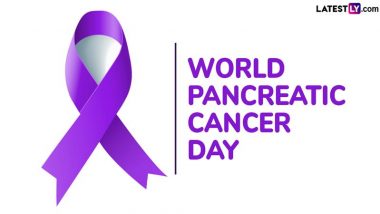Cancer has long been synonymous with the ageing population, but a concerning shift is underway as early-onset cancers become more prevalent, posing a threat to the progress made in combating the disease. While older individuals still bear the brunt of cancer diagnoses, the rise in cases among the younger demographic raises significant concerns. Diet Dos and Don’ts to Reduce Colon Cancer Risk.
In 2019, one in five new colorectal cancer patients was under 55, marking a near doubling since 1995. What compounds this issue is the tendency for younger patients to receive diagnoses at advanced stages, complicating treatment and reducing favourable outcomes. Recent data drawn from a study involving 562,145 individuals underscores the substantial increase in early-onset cancer incidence rates between 2010 and 2019.
Notably, gastrointestinal cancers exhibited the fastest-growing incidence rates among all early-onset cancers, indicating a concerning trend. However, breast cancer in women under 50 also experienced a notable uptick in cases. Interestingly, in contrast to the rise in early-onset cancers, the rates of cancer among individuals aged 50 years and older decreased over the study period.
The study, published in JAMA Network Open, reveals a shift in the landscape of cancer demographics. The lead author, Benjamin Koh, highlights the need to address this trend promptly to ensure that progress in cancer treatment is not impeded.
Historically, cancer has been viewed as a disease primarily affecting adults aged 50 and older. However, recent data challenges this perception, revealing a marked increase in the incidence of cancer among patients younger than 50, collectively referred to as early-onset cancer. These cancers manifest in various organ systems, including the breast, colon and/or rectum, pancreas, head and neck, kidney, and reproductive organs, causing significant mortality and morbidity.
The authors attribute the rise in early-onset cancers to various factors. They link it to the escalating incidence of obesity and changes in environmental exposures, encompassing factors like smoke, gasoline, sleep patterns, physical activity, microbiota, and transient exposure to carcinogenic compounds. These environmental shifts may be contributing to the altering landscape of cancer demographics.
Furthermore, there's compelling evidence suggesting unique features of cancers in younger individuals. Researchers at Sanford Burnham Prebys found genetic distinctions in breast cancer among young women compared to their older counterparts. Similarly, researchers from the Icahn School of Medicine at Mount Sinai identified differences in the immune response to cancer in individuals aged 50 or younger compared to older adults. Moreover, variations in treatment responses to various targeted medications add another layer of complexity to addressing early-onset cancers.
The National Cancer Institute's 2020 report adds weight to the growing concern. Since the 1990s, the rate of colorectal cancer has been steadily rising among adults younger than 50. Equally alarming is the increased mortality rate among younger individuals, marking colorectal cancer as the deadliest cancer type among men and the third deadliest among women.
In contrast, older adults have experienced a decline in the rate of colorectal cancer, attributed in part to regular colonoscopies and lower rates of smoking. The disparate trends among age groups highlight the urgency of understanding and addressing the factors contributing to the rise in early-onset cancers. Only through a comprehensive and nuanced approach can we hope to curb the increasing incidence and mortality associated with these cancers among the younger population.
(The above story first appeared on LatestLY on Jan 18, 2024 08:58 PM IST. For more news and updates on politics, world, sports, entertainment and lifestyle, log on to our website latestly.com).













 Quickly
Quickly





















